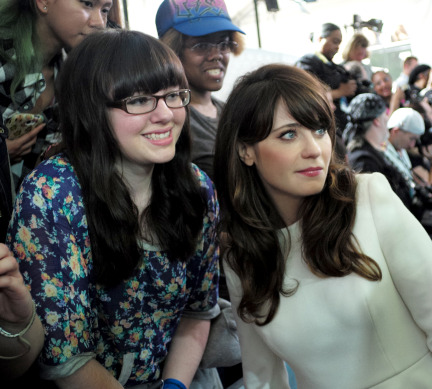Just how liberal is Germany?
When looking at how liberal a country is, attitudes to immigration, homosexuality, same-sex marriage and sex itself are fairly reliable indicators. Germany has a reputation as being ‘liberal’, particularly in comparison to other countries worldwide and even across Europe, but just how liberal, is liberal?
Germany’s attitude to homosexuality was first touched upon publicly when the first gay journal in the world, Der Eigene (“The Self-Owning”), began publishing in Germany in 1896. This pioneering journal would discuss topics such as philosophy and liberal democracy at a time when the rest of the world had extremely Vctorian views of both homosexuality and sex.
The journal published regularly until 1932 when it was closed down during WW2. Several other magazines took the place of Der Engine and, at the time of writing, there are eleven national and regional gay magazines.
In terms of modern-day German politics, there are several notable politicians who are openly gay and interestingly, not all of whom are left-wing. The far-right AfD leader, Alice Weidel is married to a woman of colour and a former mayor of Berlin gloriously outed himself by declaring “Ich bin schwul – und das ist auch gut so!” [“I am gay – and that’s a good thing!”].
In general, homosexuality is widely tolerated and is indeed celebrated – Berlin isn’t known as the queer capital of Europe for nothing.
Considering Germans have such a liberal attitude to homosexuality, (the first gay district also opened in 1920 in Berlin) they were pretty late to the party for same-sex marriage.
Although same-sex partnerships were recognised in 2001, it wasn’t until July 2017 that Germany signed the bill to approve same-sex marriage – sixteen years after The Netherlands. However, despite the time-lag, a study by Germany’s Anti-Discrimination Agency showed that the vast majority of Germans surveyed (83%) are supportive of same-sex marriage.
On the subject of sex, both hetero and non, the Germans are well-known for their love of kink, sex and nudity.
Prostitution is legal and some 40,000 sex workers are registered for taxes, pensions and other state benefits. The industry is stringently regulated and it generates a seriously impressive £15 billion a year – and it’s predicted to grow.
Across the country there’s a smorgasbord of options for those want to get off – everything from a super-brothel in Cologne with seven floors catering to all tastes, to roadside ‘sex boxes’ with nothing inside bar a panic button. You can even buy access to flat-rate ‘all you can fuck’ brothels for £50 – £100 in cities such as Münster.
It’s certainly a contrast to other parts of Europe, namely Sweden who adopted the so-called ‘Nordic’ model around the same time as Germany legalised prostitution. The Nordic model can harm sex workers rights and put them at a disadvantage and encourages lower standards for those working in the industry.
In a move which could certainly be seen as non-liberal, in November 2019 there was talk of Germany taking on the Nordic model themselves, however, a number of protests were held across the country and at present, it doesn’t look likely to happen.
Outside of prostitution, sex is everywhere and nudism is commonplace. Nudism or naturism is particularly popular in the East in rural areas and on beaches and there are dedicated nude towns for those who want to live without the restriction of pants.
When it comes to getting down, major cities all play host to a wide variety of sex clubs, ranging from the plain old vanilla to uber kinky BDSM dungeon venues. Fetish and kink are widely catered for by clubs such as KitKatClub in Berlin.
The now defunct Love Parade may have been titled ‘the biggest techno festival in the world’, however, it’s far more widely known for sex and specifically, public sex as security are told to hold off and let party-goers do their thing in the streets of Berlin. It’s safe to say people like sex in Germany and certainly aren’t prudes about it.
Germany’s liberal attitude also extends to immigration. In 2018 there were 10.9 million immigrants and migrants, which made up 13% of the entire population. When asked, most Germans didn’t have strong positive or negative views on immigration and many saw the possible benefits to their own economy, indicating that immigration is widely accepted.
By 2021, refugees are set to contribute more to the German economy than they cost, which could be part of the reason why so many Germans hold such liberal views on the subject.
It certainly appears that Germany lives up to the liberal tag – Movehub ranked them in 13th place in their ‘most liberal places in the world list, perhaps they deserve to be bumped up a few places?
Share on Facebook





